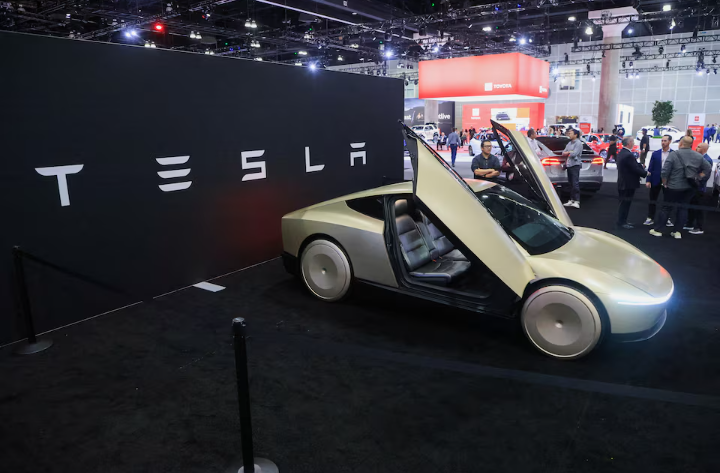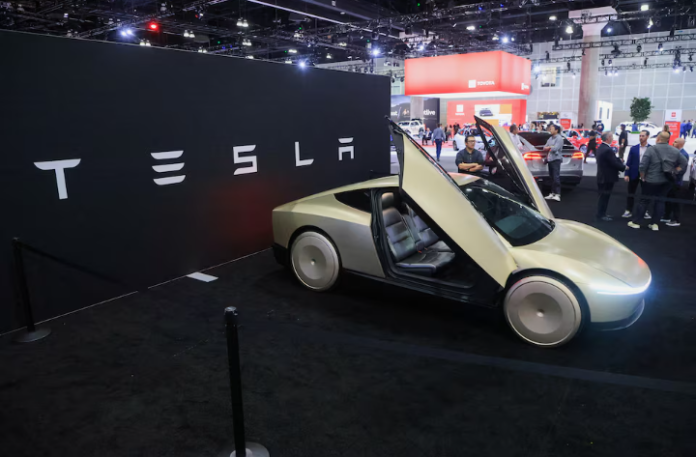Tesla’s ambitious roadmap for launching its futuristic Cybercab and electric Semi trucks in the United States has hit a major roadblock—one driven by politics and trade tensions. According to an insider source, the automaker has suspended plans to import key components from China due to sharply increased tariffs imposed by former President Donald Trump.
The suspension, which has not been publicly confirmed by Tesla, disrupts a timeline that had the company receiving shipments in the coming months and beginning trial production as early as October. Full-scale production was projected for 2026, with Cybercabs expected to be manufactured in Texas and the Semis in Nevada.
The tariff issue stems from Trump’s escalating trade war with China. Initially, Tesla was prepared to deal with the financial burden of a 34% tariff. However, on April 9, the former president increased tariffs to a staggering 84%, and later hiked them further to 125%. The cumulative effect now brings the total tariff on Chinese goods entering the U.S. to a jaw-dropping 145%.
These skyrocketing duties have made it financially unfeasible for Tesla to continue with its shipping plans from China, the source explained. Despite Tesla’s ongoing efforts over the last two years to increase its North American sourcing, certain specialized parts still need to be imported from China, especially for new product lines like the Cybercab and Semi.
The disruption threatens two cornerstone projects for Tesla. The Cybercab, a driverless, two-door electric vehicle designed for a future robotaxi service, is central to Elon Musk’s vision for transforming urban transport. Unveiled in late 2024, the Cybercab lacks traditional controls like a steering wheel and pedals, and is projected to cost under $30,000. Musk has championed it as a leap forward in autonomous driving.

On the other hand, the Tesla Semi aims to revolutionize long-haul trucking. Deliveries had already been delayed, with key customers like Pepsi awaiting their orders. The production delay now compounds pressure on Tesla to meet existing commitments while expanding its electric freight transport offerings.
The irony is that the tariff increases—meant to support American manufacturing—may be hurting U.S.-based production more than helping. Musk, a vocal proponent of free trade, had reportedly made a personal appeal to Trump to reconsider the sweeping tariffs, according to the Washington Post. Musk even posted a viral video explaining the complex global supply chains needed to produce something as simple as a pencil, let alone an electric car.
Meanwhile, retaliatory tariffs from China have also impacted Tesla’s operations overseas. The company recently halted new orders for its Model S and Model X vehicles on its Chinese website following Beijing’s imposition of a 125% tariff on U.S.-made goods.
With both domestic and international supply chains under pressure, Tesla’s production calendar—and investor confidence—may be in for a bumpy ride.



